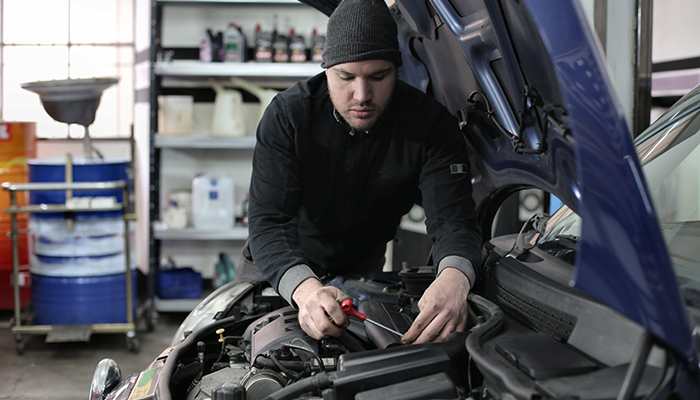Cars break down all the time, but sometimes it is hard to choose a good auto mechanic because you may not know how to explain to the mechanic what’s wrong with it. Lots of people are hesitant to bring their car to a shop because they don’t want to deal with a mechanic that may be untrustworthy or evasive or even just too busy and doesn’t want to explain things to the client.
While the majority of auto repair people are skilled professionals and want the very best for their customers, there are those that are just very busy and want to get on with the repair job and may not have good customer service skills. Worst of all, some may try to confuse you or force you into things you don’t want or need, even though most are honest.
So, it’s a good idea to know how to discuss a problem with an auto mechanic, and to be able to “speak the language” at least somewhat prior to bringing in your vehicle for repairs or service. Therefore, here are some suggestions for doing it properly:
Describe your problem in total detail. First off, you must give the mechanic as much data as you can. It’s a good idea to write down all the things that have been happening like the noises the car makes, the light that comes on, what fluids are leaking out, etc. Try to get to talk to the person who actually will be the one working on fixing your vehicle.
Don’t tell them what you think the problem is. This could be an invitation for an unscrupulous mechanic to bill you for things that aren’t even wrong with the car. Let the mechanic figure it out on their own.
Ask the mechanic to come on a ride to show them the problem. Why bother to tell them the problem if you can actually show it to them in person? It’s a great idea to get the mechanic to come on a ride with you and hopefully the car will make the noise or otherwise do what it has been doing wrong so you can show the mechanic.
Be sure the mechanic has your full attention. Since auto shops are usually pretty busy, it’s vital that the mechanic is actually listening to you when you start to tell them what the problem is with your car. Make sure you both agree on what is going to happen and that you have a signed agreement on the estimated cost so they can’t charge you more than what is agreed upon without your permission. Be aware that just because the mechanic tells you that certain things are wrong with the car, you don’t have to agree to every repair they suggest if you can’t afford it or don’t want them to do it.
Don’t be afraid to ask questions. If you don’t understand what the mechanic is telling you about the problem with your car, then ask all the questions you need to be able to understand it before you leave the vehicle to be fixed. If the mechanic is honest, they want your business and will answer all the questions they can and try their best to explain it all to their customers.
Also, certain questions are vital in any auto repair situation. For instance, you should be able to ask things like “how long will the repair take,” or “how would this problem happen,” or “what parts will have to be replaced,” etc.
Familiarize yourself with your car and its situation. Go ahead and look up the symptoms of what your car is doing before you get to the mechanic’s shop. You can do this by putting the symptoms into an Internet search engine or going onto an auto forum, etc. That way when the mechanic starts talking to you about the situation, you will be at least somewhat familiar and won’t look like you are dazed and confused, which could sometimes cause issues if the mechanic isn’t honest or is just too busy to care.
The bottom line is that if you are going to go talk to an auto mechanic, be prepared and things will work out better.
